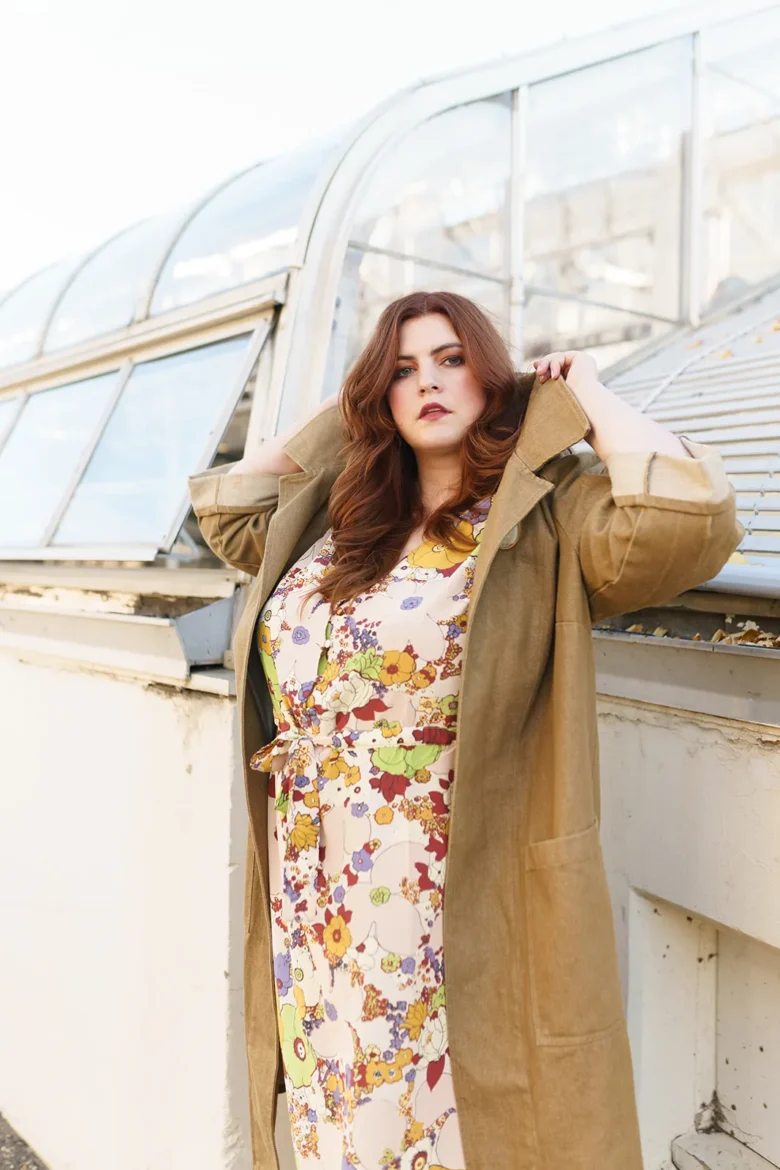Introduction
Fashion has always been a reflection of society’s values and aspirations. In recent years, there has been a growing awareness of the environmental impact of the fashion industry, leading to the emergence of eco-friendly fashion as a solution. Simultaneously, the fashion world has begun to acknowledge the diverse body types of its consumers, prompting the rise of plus-size fashion. This article explores how these two trends have converged to create a more inclusive and sustainable fashion landscape.
Understanding Eco-Friendly Fashion
Eco-friendly fashion, often referred to as sustainable fashion, prioritizes environmental and ethical considerations throughout the entire fashion production process. This approach seeks to minimize harm to the planet by using sustainable materials, reducing waste, and promoting ethical labor practices.
The Plus Size Fashion Dilemma
For too long, plus-size individuals have faced limited options when it comes to fashion. The industry has often neglected this demographic, leaving them with few choices that reflect their style and personality. However, times are changing, and the fashion world is beginning to embrace the beauty of diversity in body sizes.
The Intersection of Eco-Friendly and Plus Size Fashion
The convergence of eco-friendly and plus size fashion is a positive development. It allows for the creation of clothing that not only celebrates diverse body types but also minimizes the environmental impact of the fashion industry. This intersection brings forth a more inclusive and sustainable fashion landscape.
Benefits of Eco-Friendly Plus Size Fashion
Sustainable Materials
Eco-friendly plus size fashion incorporates sustainable materials such as organic cotton, hemp, and recycled fabrics. These materials reduce the carbon footprint of clothing production and promote responsible sourcing.
Body Positivity and Inclusivity
This fashion trend celebrates body positivity and inclusivity, sending a powerful message that fashion is for everyone, regardless of their size. It encourages individuals to feel confident and comfortable in their own skin.
Supporting Ethical Practices
By choosing eco-friendly plus size fashion, consumers support brands that adhere to ethical manufacturing processes. This means fair wages, safe working conditions, and respect for workers’ rights.
Challenges Faced by Eco-Friendly Plus Size Fashion
Limited Options
While the eco-friendly plus size fashion movement is gaining momentum, there is still a need for more options and variety. Plus-size individuals should have access to a wide range of sustainable clothing choices.
Sizing Consistency
Sizing consistency can be a challenge in plus size fashion, making it difficult for consumers to find the perfect fit. Brands need to work on standardizing sizes to cater to the diverse needs of their customers.
Cost Considerations
Eco-friendly clothing can sometimes come with a higher price tag. However, consumers are increasingly recognizing the long-term value of sustainable fashion and are willing to invest in quality pieces.
Brands Leading the Way
Several brands are leading the charge in eco-friendly plus size fashion. These companies prioritize sustainability and inclusivity in their designs and manufacturing processes. Let’s take a closer look at some of them:
Eloquii
Eloquii offers a range of stylish and eco-friendly clothing options for plus-size women. Their commitment to body positivity and sustainability is evident in their designs and practices.
Universal Standard
Universal Standard is known for its size-inclusive approach and use of sustainable materials. They offer a diverse range of clothing for all body types.
Torrid
Torrid is a brand that understands the unique fashion needs of plus-size individuals. They incorporate eco-friendly practices into their collections while staying true to their trendy aesthetic.
H&M Conscious Collection
H&M’s Conscious Collection combines affordability with sustainability. They offer eco-friendly options for plus-size individuals, making sustainable fashion accessible to a broader audience.
How to Build an Eco-Friendly Plus Size Wardrobe
Building a sustainable plus size wardrobe is both rewarding and responsible. Here are some tips to get you started:
Choosing Sustainable Fabrics
Opt for clothing made from sustainable materials like organic cotton, Tencel, or recycled polyester.
Thrifting and Secondhand Shopping
Exploring thrift stores and secondhand shops can uncover hidden gems while reducing clothing waste.
Supporting Local and Small Brands
Consider supporting local designers and small brands that prioritize sustainability and inclusivity.
DIY and Upcycling
Get creative by upcycling old clothing or creating your own unique pieces.
The Stylish Revolution in Action
Eco-friendly plus size fashion is not just a concept; it’s a stylish revolution in action. It challenges traditional fashion norms and paves the way for a more diverse and sustainable industry.
Fashion Forward and Sustainable: Case Studies
Explore real-life case studies of individuals who have embraced eco-friendly plus size fashion and how it has positively impacted their lives and the environment.
Eco-Friendly Accessories for Plus Size Fashion
Discover sustainable accessory options that complement your eco-friendly plus size wardrobe.
Eco-Friendly Makeup and Beauty Tips
Extend sustainability to your beauty routine with eco-friendly makeup and skincare tips.
Sustainability Beyond Clothing
Learn how to incorporate eco-friendly practices into other aspects of your life, from home decor to transportation.
The Future of Eco-Friendly Plus Size Fashion
As consumer demand for eco-friendly plus size fashion continues to rise, the industry will likely respond with even more innovative and sustainable solutions. The future holds exciting possibilities for a more inclusive and environmentally conscious fashion world.
Conclusion
Eco-friendly plus size fashion is not merely a trend; it’s a powerful movement that combines style, sustainability, and inclusivity




